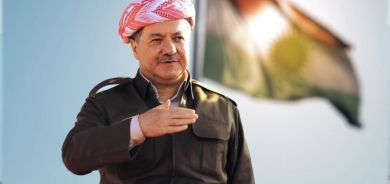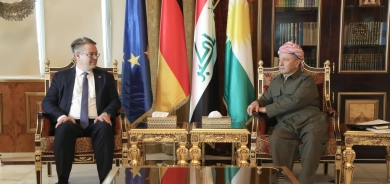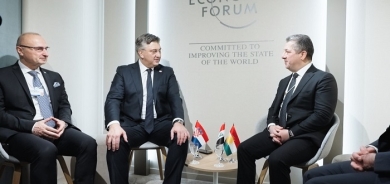Stop Qatar: Do Not Practice Same “Regional Political-Desire” Toward Kurdistan Region

In this regard, a question might be asked, is that possible to examine the influences of Qatar’s foreign policy with its tiny territories and quantity of citizenship? The response could be “yes”, in particular, when we hypothetically explain the situation of Qatar under the perception of the old International Relations theory – realism; which this theory, by some meaning, focus on man power.
But dealing with current “geopolitical situation” and the foreign policy of Qatar then we completely have reverse comprehension. And This bases on that reality, Qatar has had significant influences on the regional states that influences have dramatically triggered growing up from the latest couple decades. Thus has paved a way for Qatar to become one of the leading regional actor in the international relations of Middle East; in addition, Qatar has widely involved in so many conflicts in the region – at the beginning as a mediator and provider of humanitarian aid – that it has almost become expected that, whatever the conflict facing the region, the tiny emirate find a role for itself within it.
The key features of Qatar’s foreign policy as a mediator and negotiator in a number of conflicts in the Middle East and elsewhere – for example in Ethiopia, Afghanistan, Iraq, Israel and the occupied territories, Lebanon, Sudan and Yemen – can be articulated under two fundamental segments:
One of the prime objectives of Qatar is simply to advance its international profile and to protect itself from the perils of small state anonymity and vulnerability as well – perils of the kind from which Kuwait suffered in 1990. The other purpose reflects to the emirate family’s interests and authorities that the family potentially considering of how to maintain the security of the ruling family.
To adapt this strategy, Qatar needs to pursue the policy of “challenging” and “intervention” to the situation of regional states such as Egypt, Libya, Syria, Yemen, Palestine, Iraq and elsewhere. This infiltration in the state level activates has based on security and ideological warfare that Qatar is highly denounced for inciting people (youths) toward “radicalization”. When it comes to organization stage, Qatar has seen itself as a strong partner and assists of the extremist Islamic groups – Brotherhood, Hamas, Al-Nusra Front, Boko Haram, Islamic State in Iraq and Levant, Yemeni extremists, Libya jihadi and so forth – that this assistance bases on providing financial and logical form. Simultaneously, we should not neglect the reality, the Qatar’s authorities have perceived this policy as a good tool assisting their country’s foreign policy goal of fending off stability and maintain its regional leadership.
The state’s local environment has further helped state of Qatar to widely commit with this type of foreign policy. As it is observed, after Saudi Arabia, Qatar is the most conservative society in the Gulf Countries as the large numbers of Qataris adhere to the strict Wahhabi interpretation of Islam.
There are a number of reports have repeatedly pointed to some terrorist financiers that been operating in Qatar; for example, according to the US Treasury report, Abd Al Rahman Al Nuaymi a Qatari citizen served as an interlocutor and transfer money – “two million dollars per month and 3bn over the past two years” – from Qatari donors to the leaders of Al Qaeda in Iraq. The US Treasury and some other security reports deeply consider that the biggest share of private donations assisting terrorism, ISIL and al-Nusra Front, currently comes from Qatar rather than Saudi Arabia.
The report also released by The New York Times that even a member of the Royal family – Abdul Karim al Thani – has affiliated with financial and logical support for radical Islamic groups, including Nusra Front and ISIL’s predecessor network. This affiliation is not just in an individual level as Lina Khatib in (2013) in her academic article “Qatar’s foreign policy: the limits of pragmatism” mentions Qatar has lately changed the strategy of foreign policy form mediator to support terrorist organizations. Moreover, there are some other authors, such as (Jacob Zenn 2013, Lori Plotkin Boghardt 2014, Sean Savage/JNS.org 2014), indicated some extremist organizations that Qatar has very explicitly recruited and hired them such as:
• Boko Haram, who captured the World’s attention when it abducted 276 Nigerian school-girls and sold them into sex slavery, was assisted and established by Qatar as a “money making venture.” The financier, a Mauritanian proxy agent, now reside in Doha.
• The genocidal and radical Islamic State in Iraq and Syria, is financed and assisted by Qatar. According to a German Minister and US Treasury, “who is financing ISIS”.
• Qatar is the only state to openly welcome the Muslim Brotherhood/Egypt, identified as terrorist organization by many states, such as Egypt, Israel. Doha’s Al Jazeera broadcast network is home to the brotherhood’s spiritual leader, Yousf al-Qaradawi, backer of terrorism.
• Qatari Ambassador in Libya is discover to be recruiting Libyan jihadist to join ISIS.
• Hamas, whose leader resides of Doha, receives a majority of its funding from Qatar. The Qataris also subsidized the construction of the Hamas tunnel system that simplify smuggling and terror operations.
• Khalid Sheikh Mohammed, the architect of the September 11, 2001 operation, was on the payroll of the Qatari Ministry of Water and Electricity. Kalid spent his life in Doha from 1992-1996, as a guest of Abdallah bin Khalid al Thani, then Qatar’s Minister of Religious affairs. In the end, it was the Emir of Qatar who handed of Khalid Sheikh Mohammed to CIA Director George Tenet.
A linkage between Qatari assists to the terrorist organization with current situation of Kurdistan, in particular after ISIL has changed its military offensive toward Kurdistan region, is primarily reflected to ideological warfare. According to ISIL – scholars and leaders – interpretation for Islam all individual, groups and governments are infidel if they do not follow and accept the ISIL’s principle (strongly backed by Qataris Wahhabi), thereby, war against them are defined as Jihad. The Kurdish people are not excluding from those groups who have been named as infidel by ISIL.
At the same time, Qatar has perceived its own interests in current (in)security and warfare in Iraq as well as Kurdistan under the same assessment of its political ambitions for the region: on one hand to attain the regional leadership and to challenge the other states’ influences in the region such as Saudi Arabia, Iran, Turkey and elsewhere; on the other hand to maintain its own state security stability and to keep Qatar far away from the wave-threat of the radical Islamic groups. As aforementioned, large number of Qataris’ citizens follow the Wahhabism ideology – the main sources of creating extremism. Thereby, Qatar aims to transfer the influences of this extremist ideology to the other countries such as Libya, Egypt, Yamen, Syria, Iraq including Kurdistan and elsewhere.
In conclusion, to tackle this problem and preventing the Qatar’s passive political desire toward Kurdistan: firstly, it requires the Kurdish leadership to create a strong political and economic relationship with the state of Qatar; secondly, the Kurdish Islamic preachers (Sunni Imams in particular) build up a religion contacts with Wahhabism leaders that this policy by some meaning motivate state of Qatar and Wahhabism followers to somehow halt themselves from inciting and creating radical people in fighting against Kurdish.
Dlsoz Hawrami is a Kurdish writer and academic. A Salahaddin University-Kurdistan graduate with a Bachelor’s degree in English Language, and Deakin University-Australia graduate with a Master’s degree in International Relations

 Dlsoz Hawrami
Dlsoz Hawrami











